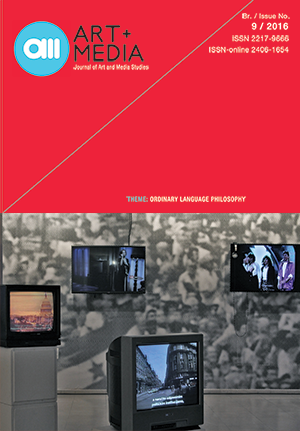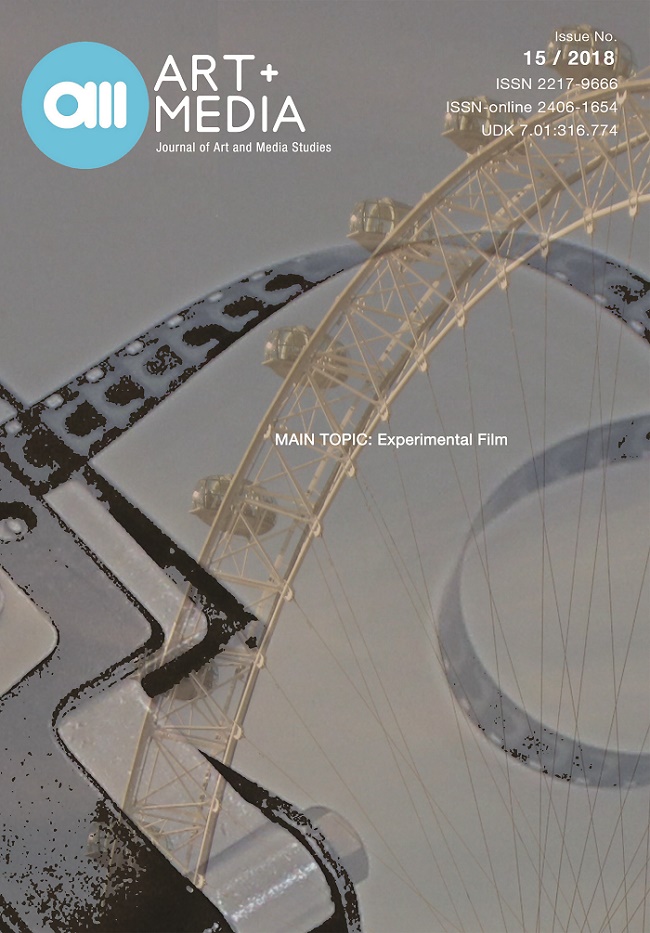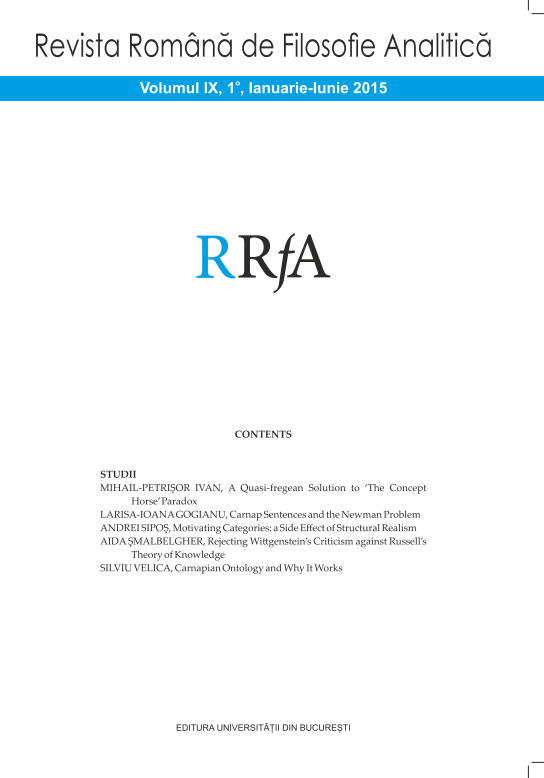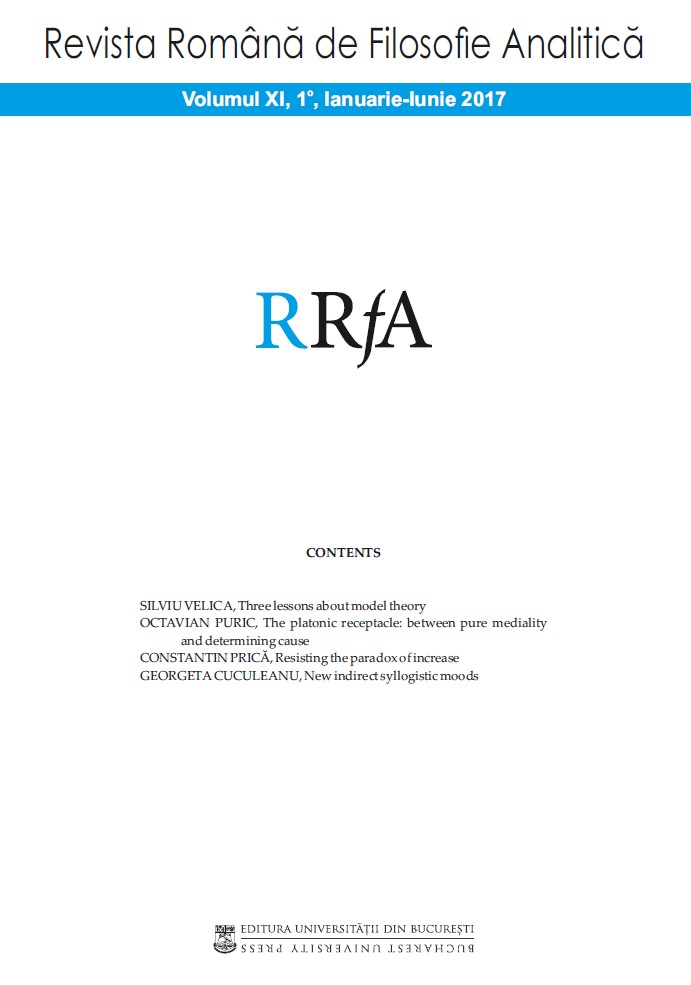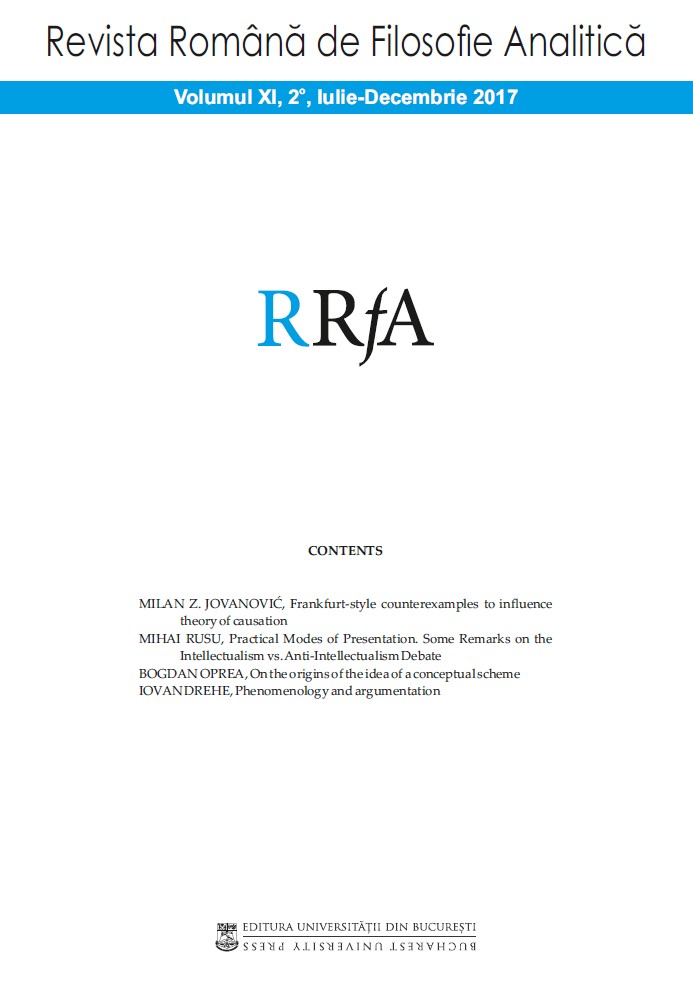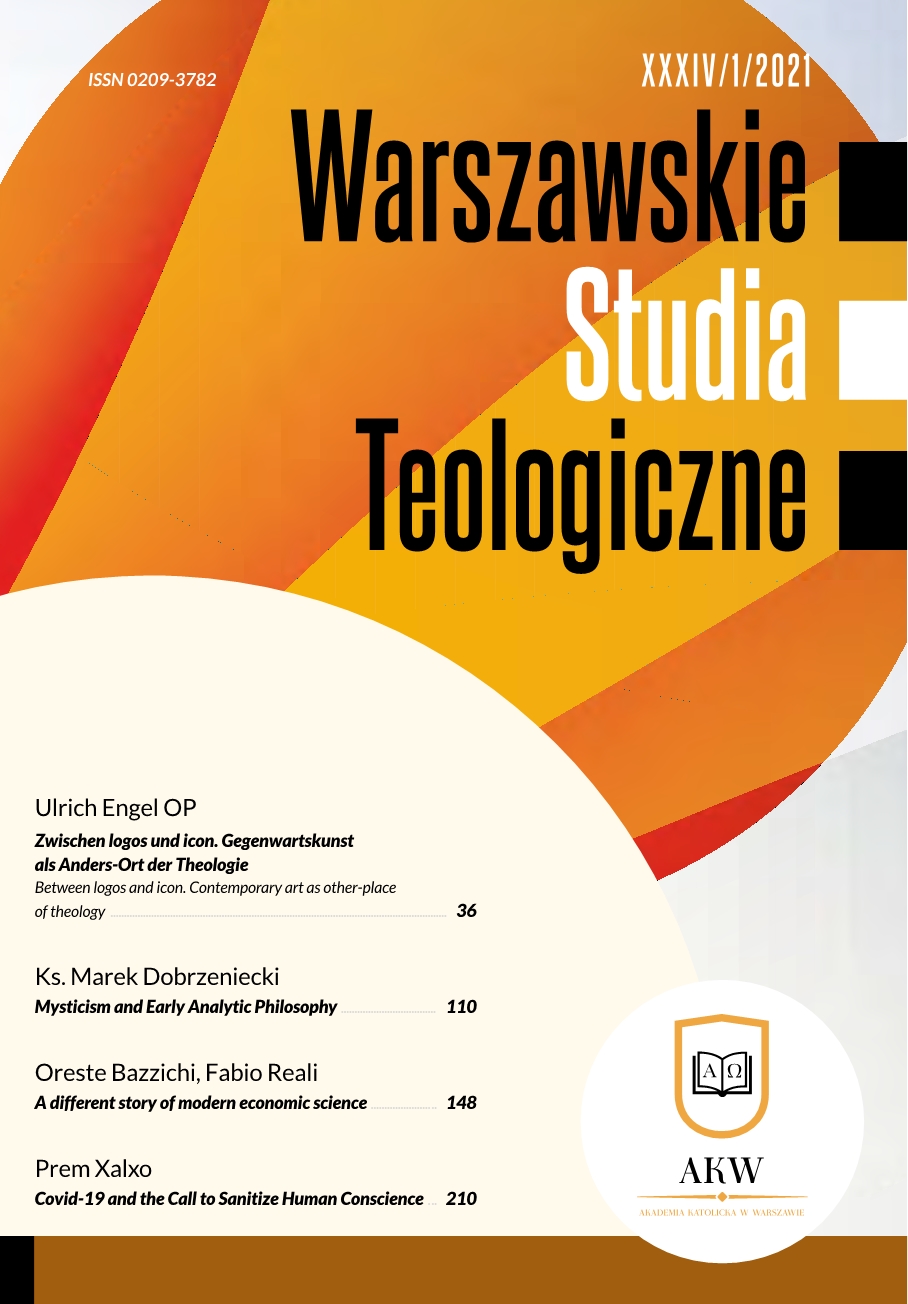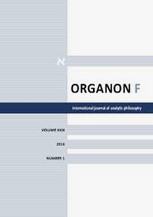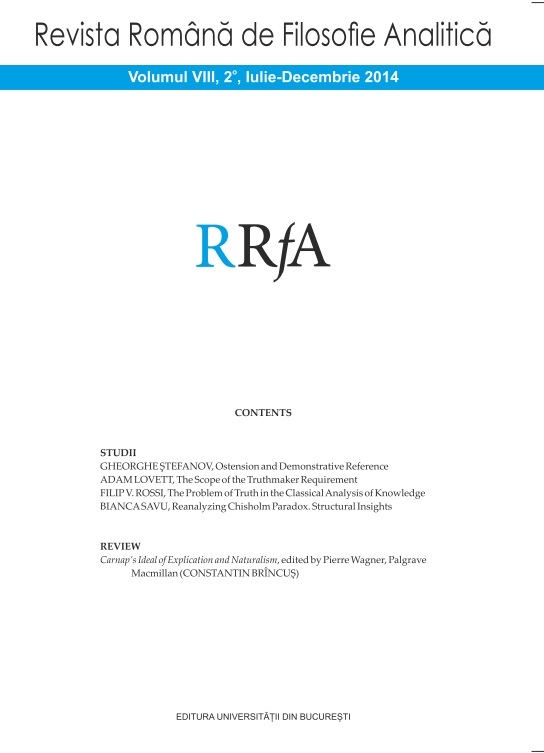
OSTENSION AND DEMONSTRATIVE REFERENCE
The strong similarity between the use of ostension and that of a simple demonstrative to predicate something of an object seems to conflict with equally strong intuitions according to which, while “this” does usually refer to an object, the gesture of holding an object in your hand and showing it to an audience does not refer to the demonstrated object. This paper argues that the problem is authentic and provides a solution to it. In doing so, a more general thought is given support by the approach used. Namely, the thought that our abilities to directly refer to things require some basic referential abilities exhibited in ostension and the use of demonstratives which, in their turn, rest upon our abilities to cooperate in performing non-communicative actions on our environment. Several concepts introduced in order to solve the initial problem can be used to articulate this thought in more detail.
More...
